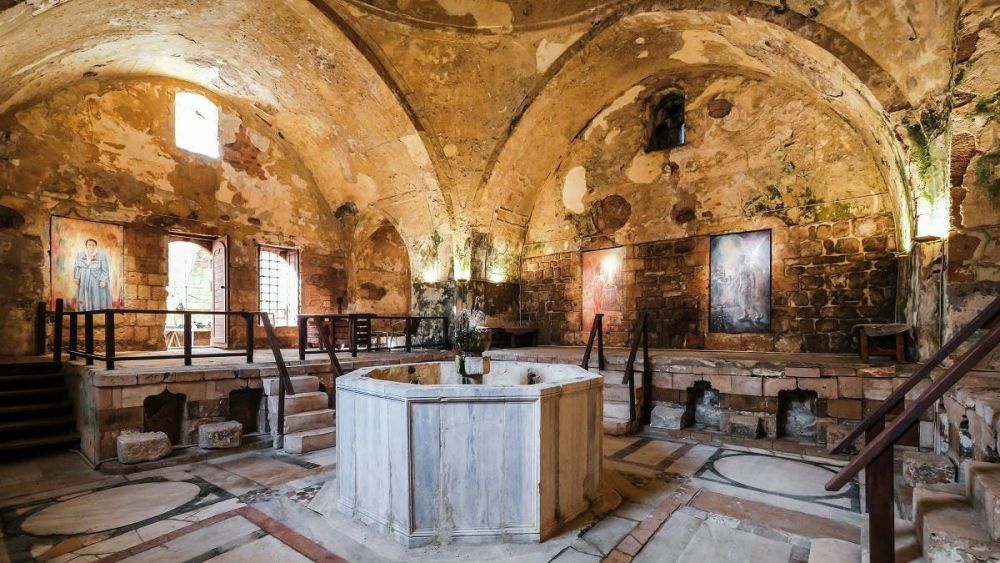

The tradition of the Hammam, or traditional bathhouse, in Lebanon dates back to the Roman times when bathing was an integral part of the culture. Influenced by both Roman and Ottoman traditions, Hammams became a staple in social and cultural life, serving not only as places for cleansing but also for relaxation, socializing, and even conducting business. The elaborate rituals and the architectural beauty of Hammams have long been admired, making them an important aspect of the country's historical heritage. Restoration projects have aimed to preserve some of these historical structures, allowing visitors to experience a piece of living history.
The Beiteddine Palace stands as a testament to Lebanon's grand architectural heritage. Constructed over a thirty-year period, beginning in the early 19th-century during the rule of Emir Bashir Shihab II, the palace is a blend of Italian and Arab architectural styles. Nestled in the Chouf Mountains, its intricate mosaics, beautiful gardens, and ornate rooms attract visitors from around the world. Presently, it serves not just as a museum but also as a venue for the annual Beiteddine Festival, showcasing a rich program of concerts and performances that celebrate both local and international art.
Tourism in Lebanon has been a significant sector for many years, with the country being referred to as the "Switzerland of the East" during its golden age in the mid-20th century. Attracting international tourists for its culture, history, cuisine, and the famous Lebanese hospitality, it became a hub for luxury tourism.
However, the civil war from 1975 to 1990 dealt a severe blow to the tourism industry. The post-war period saw substantial efforts to rebuild and revive this vital sector. Historical sites, nature reserves, and UNESCO World Heritage Sites, like Baalbek and Byblos, have been major attractions for cultural and historical tourism. More recently, Beirut's downtown reconstruction has restored the city's status as a hub of finance and fashion, bringing in a new wave of lifestyle tourism.
In recent years, Lebanon has witnessed a resurgence in tourism, focusing on eco-tourism, adventure travel, and cultural experiences. The country is promoting its outdoor activities, such as hiking in the Lebanon Mountain Trail or skiing in resorts like Faraya. Gastronomy tourism is also on the rise, with travelers seeking authentic Lebanese culinary experiences, wine tours in the Bekaa Valley, and cooking classes. The growing emphasis on sustainable and responsible travel is shaping new tourism offerings that aim to preserve Lebanon's natural and cultural resources while benefiting local communities.
With an ever-evolving landscape, Lebanon continues to tackle challenges and leverage its rich historical and cultural offerings to draw visitors from around the globe.